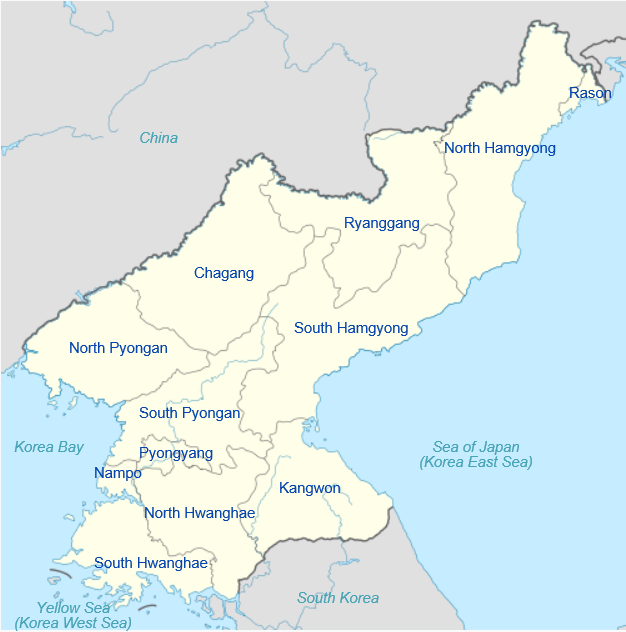North Korea has been in the news a lot lately. They recently conducted a nuclear test, the fifth in series, in their quest to miniaturize nuclear warheads to attach to missiles. Recent military exercises by the U.S. and South Korea on the Korean peninsula have enraged the N.K. dictator and brought more threats of nuclear annihilation from him. There have been calls from conservatives inside and outside S.K. for S.K. to develop its own nuclear weapons.
There are international economic sanctions on N.K. to try to get them to abandon their nuclear weapons program. There have been attempts to pressure China to use their influence with N.K. to get them back to the bargaining table. Now S.K. has just announced that they have an elite military strike force that is ready to enter N.K. and assassinate the dictator if they feel that N.K. is getting ready to launch an attack against S.K.
The U.S. is basically working on two "tracks" to try to deal with the threats posed by N.K. and their nuclear weapons program. The first track or the "carrot" consists of offering to remove sanctions and resume trade with N.K. if they halt their nuclear weapons development and get rid of existing nuclear warheads and missiles. Unfortunately, this approach must be considered to be a failure since the sanctions have not stopped N.K. from working on nuclear weapons.
The U.S. recently constructed an anti-missile system in S.K. to protect it against N.K. missiles. This system was installed in S.K. over the strenuous objections of China who claim that it could also be used against Chinese missiles in case of military conflicts over territorial disputes in the South China Sea. Since China has the most leverage over N.K., this dispute does not bode well for getting China to help get N.K. to the negotiating table.
The second track or "stick" consists of plans and preparations to deal with N.K. belligerency by any means necessary including the possibility of a preemptive nuclear attack against N.K. This approach does not appear to be a viable option because the U.S. is just not willing at this point to use preemptive military action against N.K. In addition, a nuclear attack on N.K. would spread fallout to S.K.
In view of the failure of both of these tracks to produce any positive results, there have been calls for developing a new policy towards N.K. One suggestion has been that economic sanctions be unilaterally removed. Lobby the U.N. to sign a formal peace treaty with N.K. ending the still existing state of war. Have the U.N. recognize N.K. as a member of the U.N and recognize the current regime as the legitimate government of N.K. This would all be accomplished without any mention of or action with respect to the N.K. nuclear weapons program or missile program.
If this could be accomplished, then N.K. could become a full member of the international family of nations. They could be offered economic and developmental assistance in return for signing the Nuclear Non-Proliferation Treaty and conforming to the current international standards with respect to their existing nuclear and missiles programs. This new approach offers a break from the past and the possibility of a peaceful resolution to the problems posed by a nuclear N.K.
Map of North Korea:
